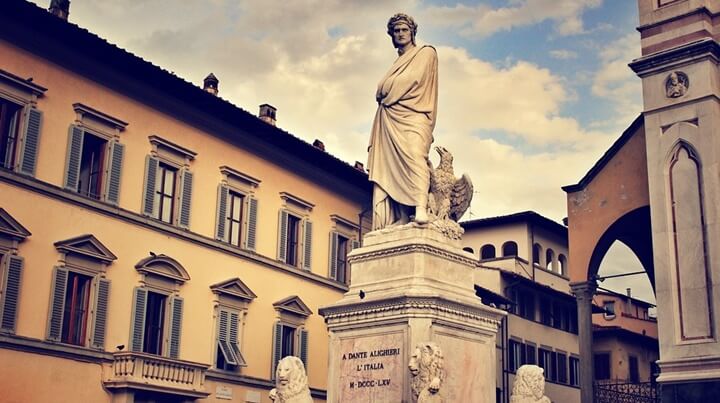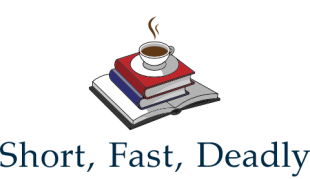Poetry has captivated readers long after the words were originally written. Rich imagery or hidden meaning both inspire and provoke, with the best being passed down the generations. Poets have drawn readers into imaginary worlds, providing a new view of life and our place within the world. Our list of greatest poets are those who provide an emotional connection to the written word that few have been able to do. William Shakespeare and Edgar Allan Poe are not included here as they are already in our list of all time best prose writers.

Dante Alighieri (1265-1321)
Best known for: Divine Comedy
Dante Alighieri was a major Italian poet of the late middle ages and early renaissance period. His Divine Comedy is widely considered the most important poem of the Middle Ages and the greatest literary work in the Italian language. The importance came not just from the words, but the fact it was written in the Tuscan dialect, not Latin. This highly unorthodox decision set a precedent for later Italian writers, and was pivotal in establishing the national language of Italy.
Dante’s depictions of Hell, Purgatory, and Heaven have provided inspiration for many western artists and have been said to influence many other authors including Alfred Tennyson, Geoffrey Chaucer and John Milton.
Homer
Best known for: Iliad, Odyssey
Homer’s Iliad and the Odyssey are two epic poems from ancient Greek literature. Debate continues as to whether the work is that of one genius poet or the result of the working and re-working of many contributors. What is accepted is that the poems were written around the late eighth or early seventh century BC and written in Homeric (or Epic) Greek. The impact of this poetry on western civilisation has been immense, inspiring many famous work of art, music, literature and film.
Walt Whitman (1819-1892)
Best known for: Leaves of Grass
An American poet, essayist, humanist and journalist, Whitman transitioned between transcendentalism and realism, incorporating both views in his works. Often called the Father of Free Verse, he is considered one of the most influential poets from North America. His work was very controversial at the time, particularly his poetry collection Leaves of Grass, which was considered obscene because of its overt sexuality.
William Butler Yeats (1865-1939)
Best known for: The Second Coming, Sailing to Byzantium and Among School Children.
An Irish poet and one of the foremost figures of 20th century literature. Fascinated by Irish legends and the occult, these topics feature in the first phase of his work. From 1900, his poetry grew more physical and realistic as he renounced the transcendental beliefs of his youth, though he remained preoccupied with physical and spiritual masks, as well as with cyclical theories of life. Yeats was a driving force behind the Irish Literary Revival and in 1923 was awarded the Nobel Prize in Literature.
William Blake (1757-1827)
Best known for: Songs of Innocence and of Experience, The Lamb, The Tyger, A Poison Tree
An English poet, painter, and printmaker who was mostly unrecognised during his lifetime, Blake is now considered one of the most important figures of the Romantic Age. He was scorned by his contemporaries for his individual views, but later highly regarded by later critics for his expressiveness and creativity, and for the philosophical and mystical undercurrents within his work. His poetry is reverent of the Bible but hostile to organised religion, and influenced by the ambitions and ideals of the French and American Revolutions. In later years he rejected many of these political beliefs, and whilst his influences are known, his work is not easy to classify.
Pablo Neruda (1904-1973)
Best known for: Twenty Love Poems and a Song of Despair
Born Ricardo Eliécer Neftalí Reyes Basoalto, Pablo Neruda was a Chilean poet-diplomat and politician who took his pen name from the Czech poet Jan Neruda. Neruda became known as a poet when he was just 10 years of age. He wrote surrealist poems, historical epics, overtly political manifestos, a prose autobiography, and passionate love poems. Pablo Neruda won the Nobel Prize for Literature in 1971.
Emily Dickinson (1830-1886)
Best known for: Hope is the Thing with Feathers, Because I could not stop for Death
An American poet born in Amherst, Massachusetts, Dickinson lived much of her life in reclusive isolation where she wrote 1800 poems, though fewer than a dozen were published in her lifetime, and those that were, had usually been significantly altered by publishers. Dickinson’s poems contain short lines, no titles and were unconventional for the time. Many of her poems deal with themes of death and immortality. A complete, mostly unaltered, collection of her poetry became available for the first time in 1955.
T. S. Eliot (1888-1965)
Best known for: The Love Song of J. Alfred Prufrock, The Waste Land, Four Quartets
Thomas Stearns Eliot renounced his American passport and became a British subject in 1927. Eliot is considered a British essayist, publisher, playwright, literary and social critic, and one of the twentieth century’s major poets. Eliot attracted widespread attention for his poem The Love Song of J. Alfred Prufrock which he wrote in 1915, which was seen as a masterpiece of the Modernist movement. He also wrote seven plays and in 1948 was awarded the Nobel Prize in Literature in 1948 for his pioneer contribution to modern poetry.
John Keats (1795-1821)
Best known for: On First Looking into Chapman’s Homer, I Stood Tip-toe Upon a Little Hill
An English Romantic poet of the second generation of Romantic poets, along with Lord Byron and Percy Bysshe Shelley. His work was published for the first time in 1817 and were not generally well received by critics. It was at the end of the nineteenth century that Keats became more popular and influenced a number of poets and writers. His poetry is characterised by sensual imagery, most notably in the series of odes. Today his poems and letters are some of the most popular and most analysed in English literature.
